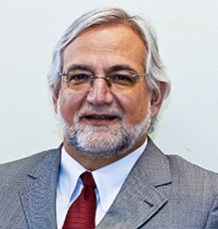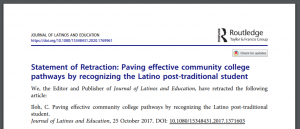A paper touted as “the first systematic review and meta-analysis” of research on the effects of homeopathy for attention deficit and hyperactivity disorder (ADHD) has been retracted more than a year after critics first contacted the journal with concerns.
The article, “Is homeopathy effective for attention deficit and hyperactivity disorder? A meta-analysis,” appeared in Pediatric Research, a Springer Nature title, last June. It has not been cited in the scientific literature, according to Clarivate’s Web of Science, but Altmetric, which quantifies the online attention papers receive, ranks the paper in the top 5% of all articles ever tracked.
The original paper concluded:
Individualized homeopathy showed a clinically relevant and statistically robust effect in the treatment of ADHD.
However, the retraction notice, dated September 20, detailed four “concerns regarding the analysis of the articles included in the meta-analysis,” and concluded:
Continue reading Paper on homeopathy for ADHD retracted for ‘deficiencies’








